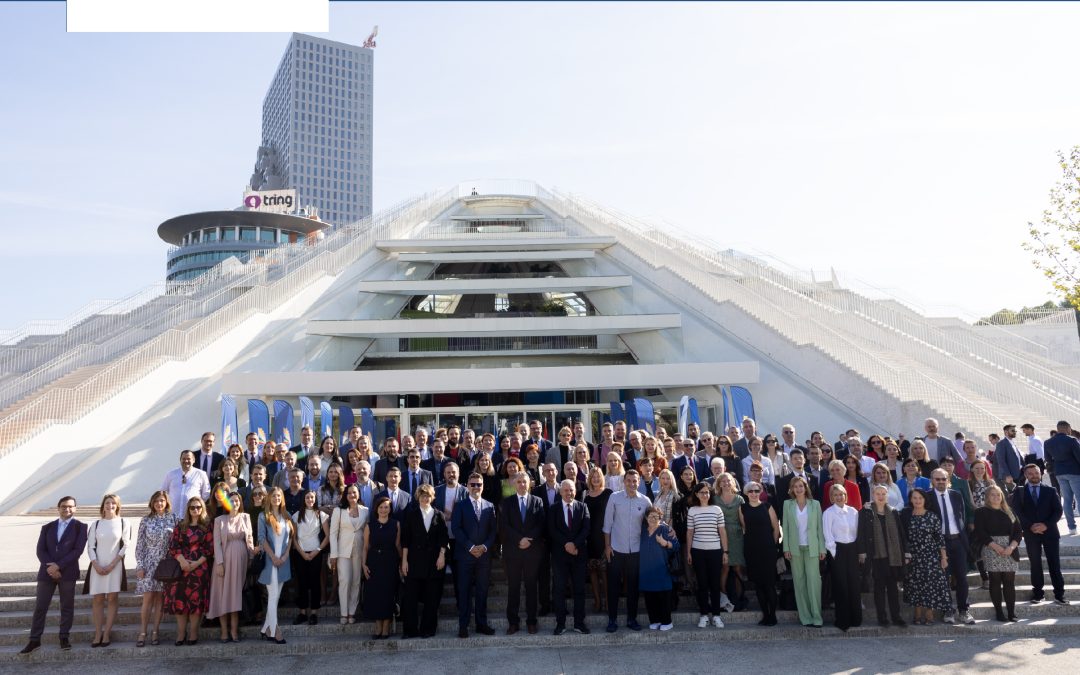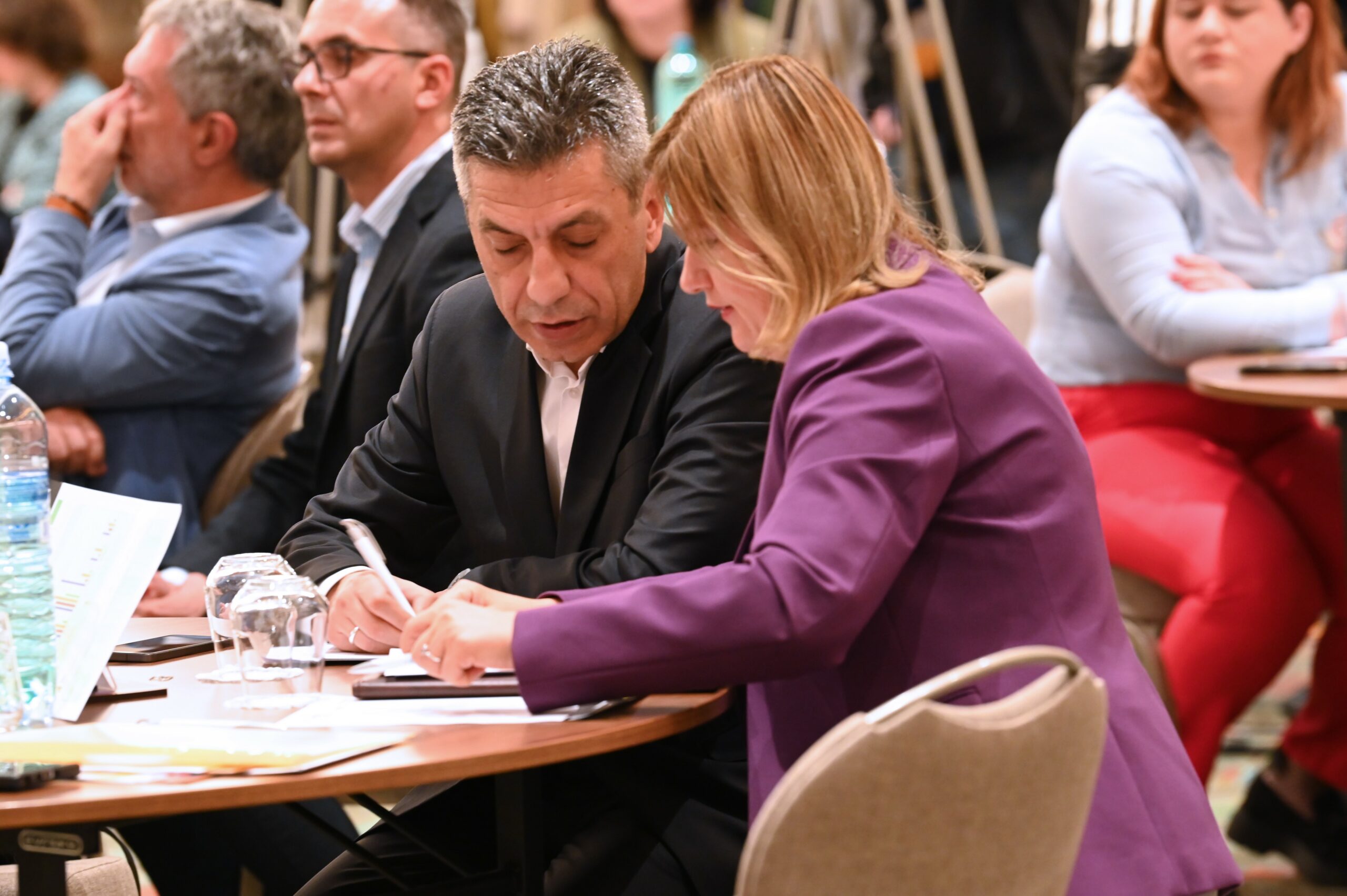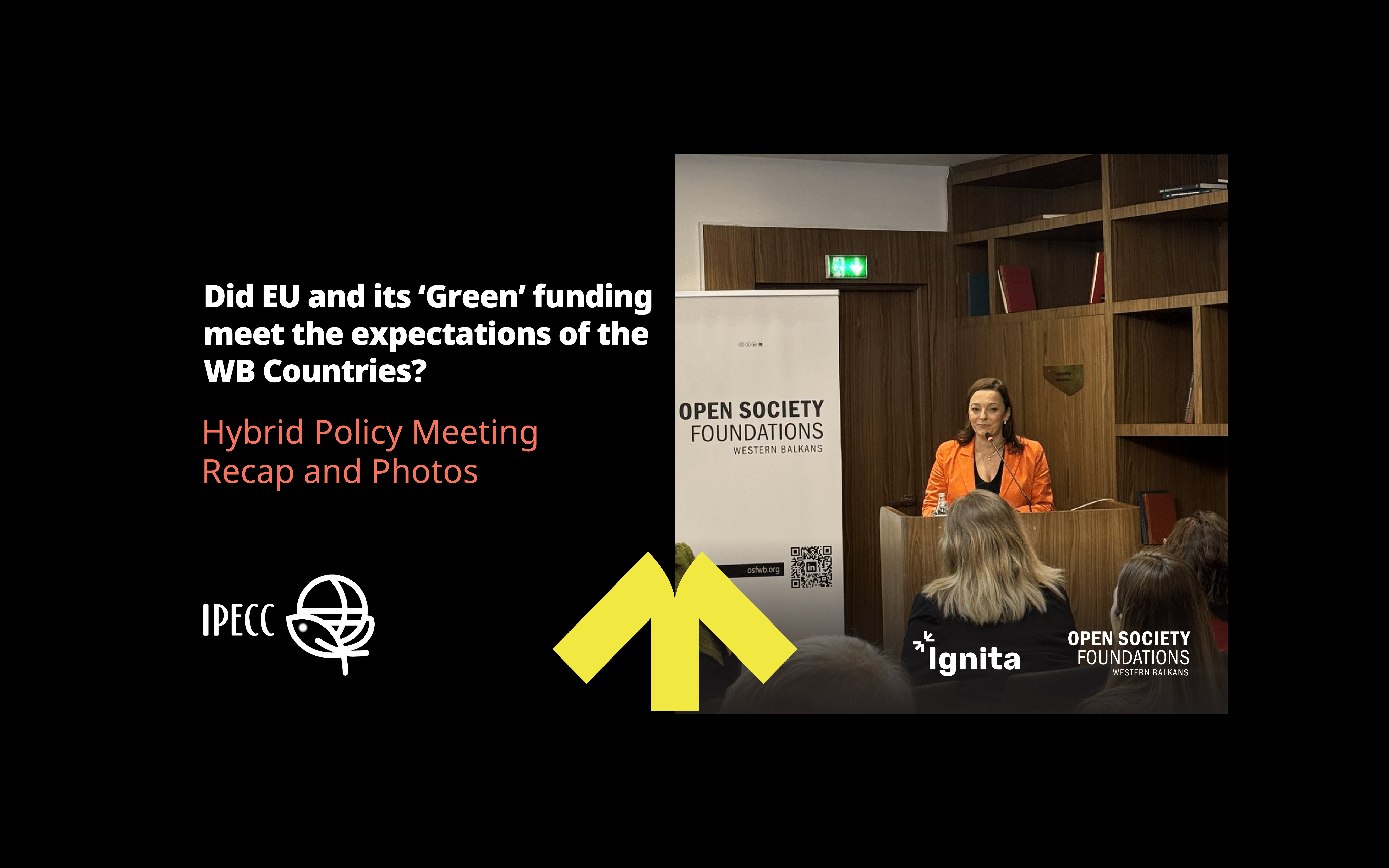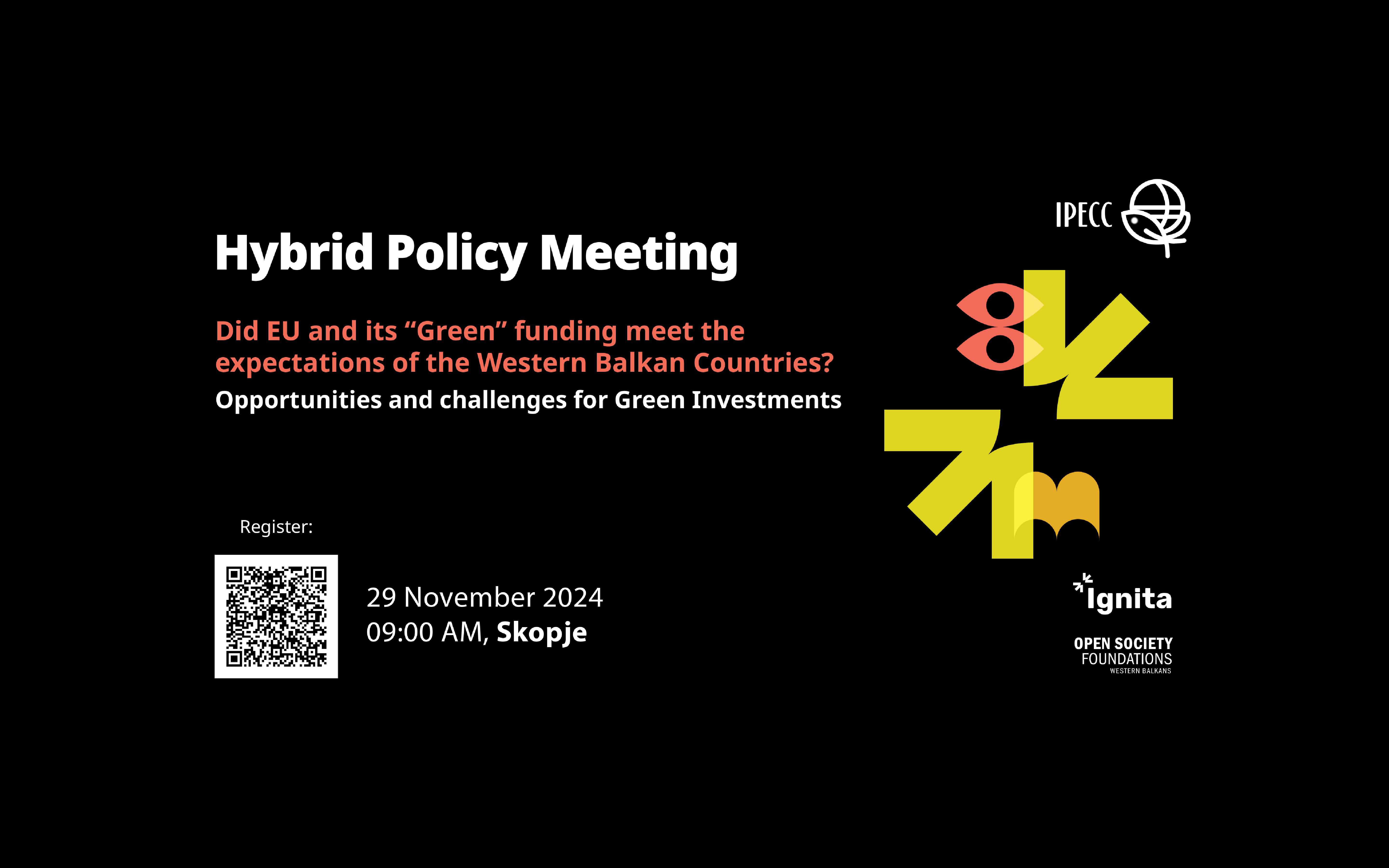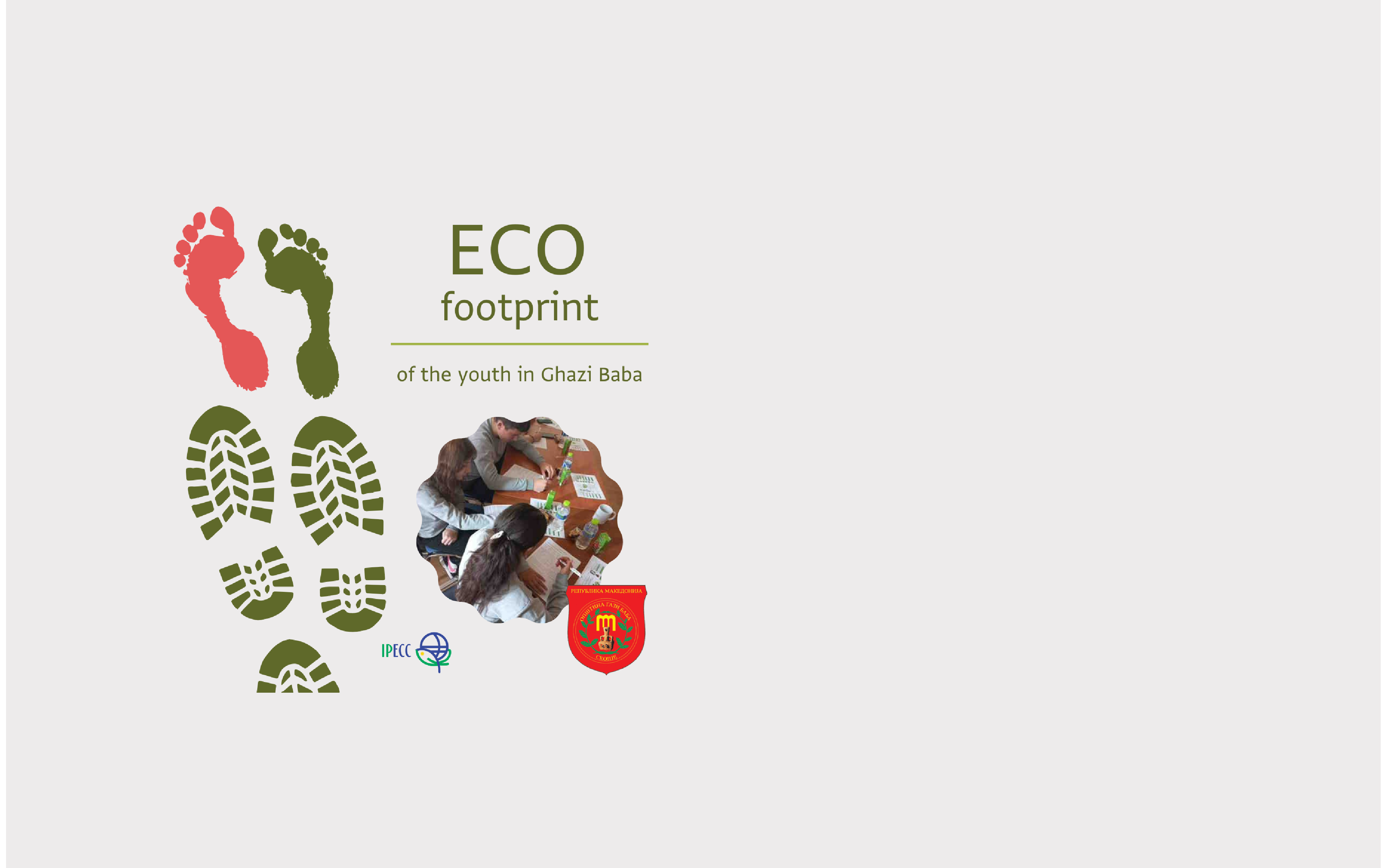Collaborative action and investment in sustainable infrastructure, environmental protection, and governance reforms can foster more sustainable and environmentally responsible future in the Western Balkans
Meeting the European Union’s environmental and climate requirements and upholding the Green Agenda commitments were key topics of discussion at the panel “Greening the Western Balkans: Uniting for Sustainable Infrastructure, Biodiversity Protection, and Effective Governance.” This panel was organized by the Institute for Good Governance and Policies in Environment and Climate Change (IPECC) as part of the Civil Society Forum held in Tirana. The panel, moderated by Jadranka Ivanova, President of IPECC, brought together experts and officials from the Western Balkans to address the region’s environmental and sustainability challenges.
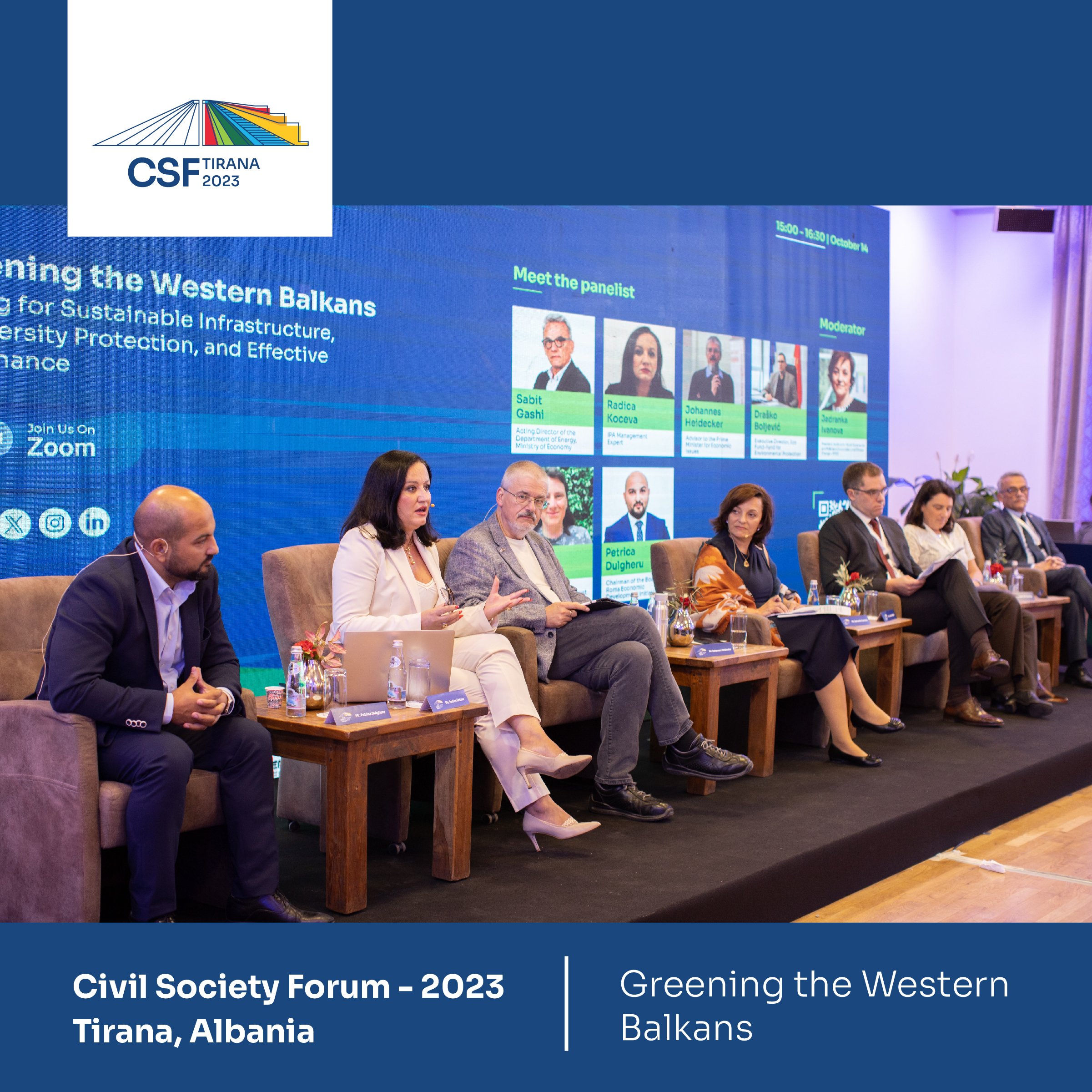
Sabit Gashi, Acting Director of the Department of Energy, Ministry of Economy, shared Kosovo’s ambitious vision to achieve surplus energy from solar sources by 2030. However, this vision necessitates substantial investment and administrative capacity to implement an effective energy policy.
Critical challenge of strengthening human capacities, building and retaining skills for sustainability was emphasized by Radica Koceva, IPA Management expert. To efficiently utilize EU funds, projects should align with governmental programs, focus on green investments, and promote transparency and accountability, she said. On the side of EU, efficiency of funding distribution could be enhanced by modifying the pre-accession instruments to align more closely with structural fund mechanisms and focusing on the capacity to effectively utilize these funds.
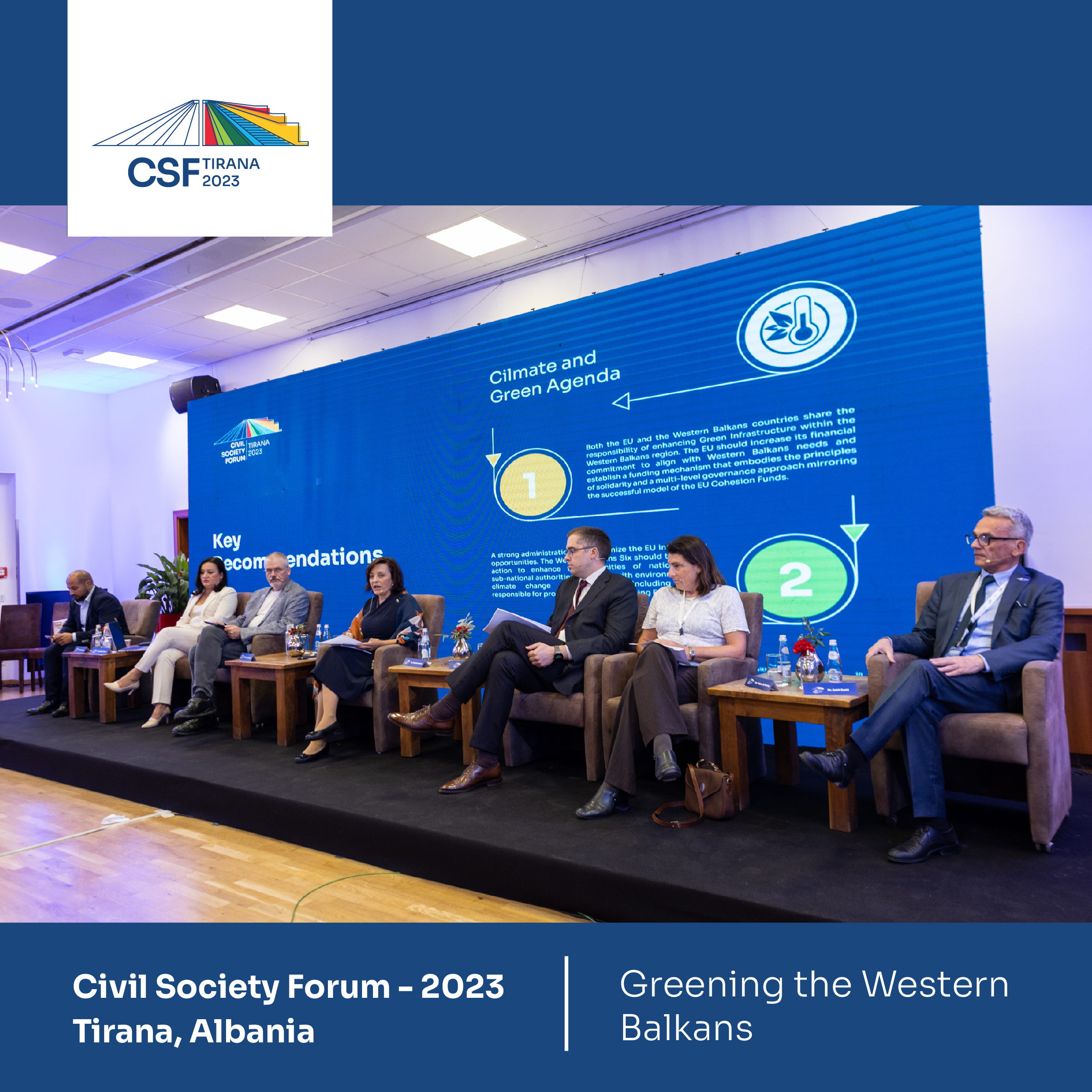
Advisor to the Prime Minister of Republic of North Macedonia, Johannes Heidecker, stressed the importance of balancing economic growth and environmental protection, highlighting that higher GDP can be achieved by ensuring environmental protection and growth work hand in hand.
The need for people-centered approaches in green initiatives and the importance of state engagement with local communities were addressed by Petrica Dulgheru, Chairman of the Board of the Roma Economic Development Initiative. He also emphasized the crucial role that CSOs play in engaging with local communities although their impact is limited due to reliance on donor funding. The Western Balkans have great potential for renewable energy, particularly solar power, he said. Making renewable technologies accessible and affordable for vulnerable communities, such are Roma, is essential.
According to Mirjam de Koning, Executive Director of the Prespa-Ohrid Nature Trust, Western Balkans’ protected areas need investment to ensure effective protection and management. Tourism revenue should be reinvested in preserving natural environments, and the younger generation should be educated about the value of nature and the significance of the biodiversity.
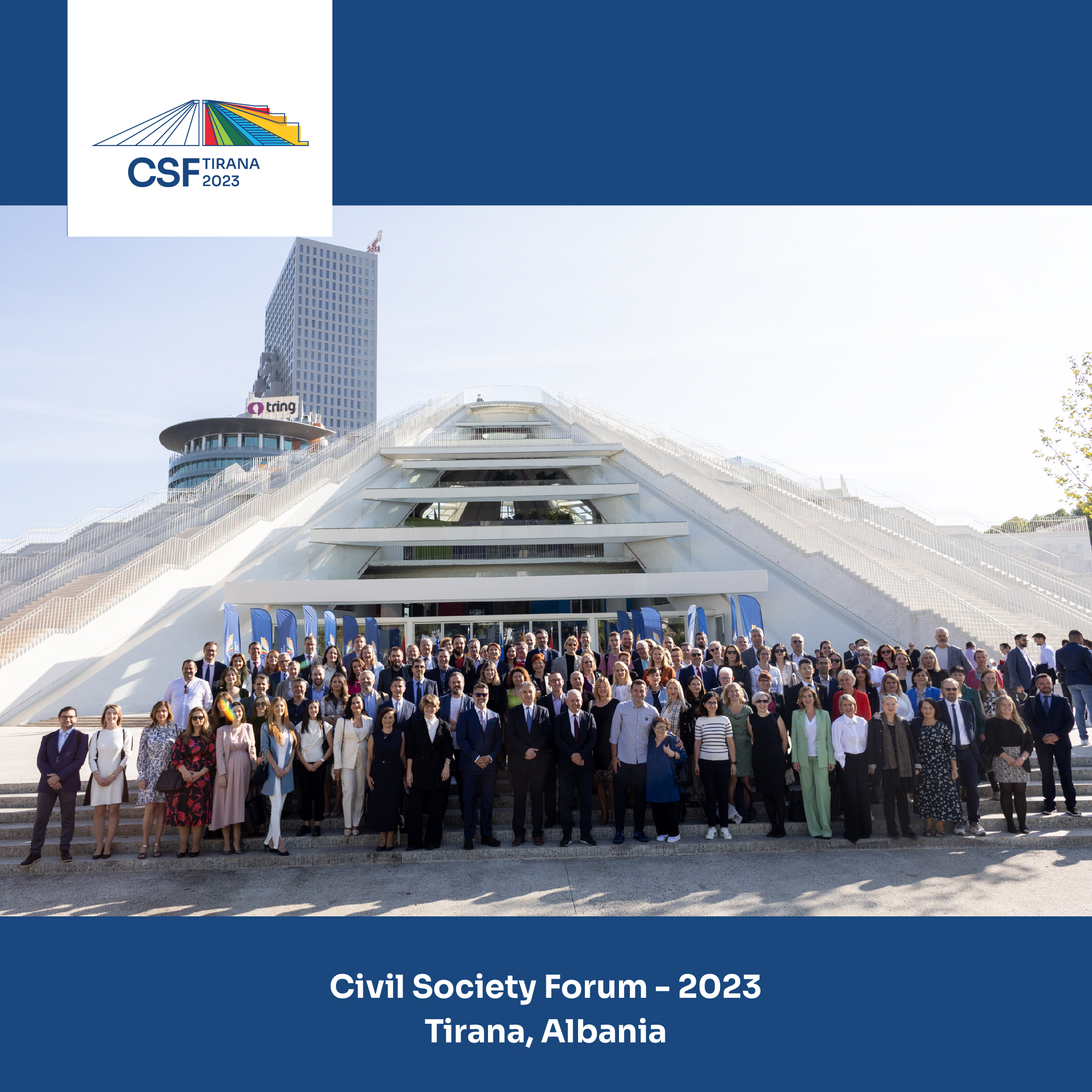
Montenegro has made remarkable progress in addressing environmental protection, renewable energy, climate change, and EU integration’s Chapter 27. Montenegro’s Eco Fund, with a budget of EUR 9.3 million in 2023, supports various initiatives such as electric vehicles, photovoltaic panels, energy efficiency, LED lighting, and waste management, said Drasko Boljevic, Executive Director of the Eco Fund. The country’s commitment to environmental sustainability is evident in its proactive approach and collaboration with the Green Climate Fund to tackle climate challenges and promote sustainable development.
Read the full recommendations here: https://wb-csf.eu/publications-csf/key-recommendations-of-the-thematic-working-group-on-climate-and-green-agenda
The Open Society Foundations – Western Balkans (OSFWB), mandated by the Government of Albania as the current holder of the Presidency of the Berlin Process, and in collaboration with the Hellenic Foundation for European & Foreign Policy (ELIAMEP) and with the Cooperation and Development Institute (CDI), is organizing this year’s Civil Society & Think Tank Forum (CSF). The CSF, organized as part of the Berlin Process Summit to be held in October 2023 in Tirana, aims to foster regional cooperation, strengthen EU-related reforms and support the accession process of the Western Balkan countries.

